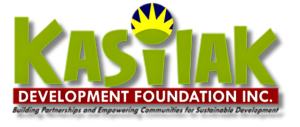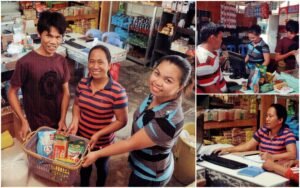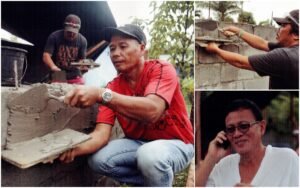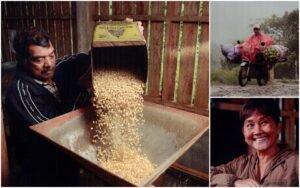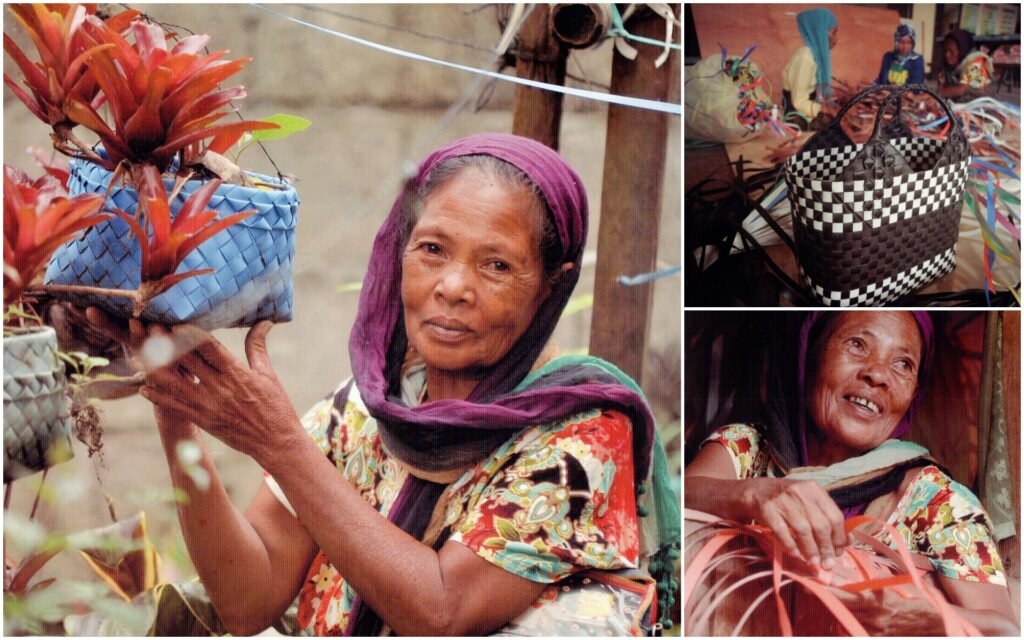
The women of Pamotolon create various products from discarded plastic strips.
At 67, Libton Luminog still moves around quickly and confidently, albeit with her back slightly bent. Fondly called “Babu (Auntie),” she has a cheerful demeanor that makes it easy for her to talk to people, even those she has met for the first time.
“Tag-pila ning bayong (How much is this basket),” one newcomer asks. “The regular price is P160 each,” she answers with a childlike smile and a mischievous glint in her eyes. “But for you it’s P200.”
Babu’s humor is matched by her expertise in weaving, which she does along with the 20 other members of the Pamotolon Women’s Organization in Kalilangan, Bukidnon. Like the other women, Babu’s skill was passed on to her from generation to generation of weavers. “My parents taught me to weave at an early age,” she says. “By the time I was 12, I could make a banig (native mat).”
The women of Pamotolon used to create bayong (native baskets), mats, flower pots, hampers, and other products using tikog, a kind of reed that used to grow aplenty in the area. With the tikog getting scarce as urbanization slowly creeps in, Babu and her companions now weave their magic using colored plastic strips that had been discarded after being used to pack bananas and other products from Dole Stanfilco.
Kasilak started the recycling project in 2006, but it wasn’t until 2012 that the foundation sent it full blast under the Women Empowerment Access for Viable Enterprise (WEAVE) program. It was a perfect fit: the members would use their weaving expertise while Kasilak would provide the plastic strips for free.
“How much we produce really depends on us,” Babu says as she squats on the floor, one foot stepping on plastic strips while her hands weave them together. “If we work hard, each of us can make one bayong per day. If we start in the morning, we can finish in the afternoon. At night we put in the handles.”
The volume the group produces also depends on orders from a wholesaler in the town of Talakag, also in Bukidnon; if more baskets are needed, more members are called in to weave. It is through this wholesaler that the organization’s products reach other shores. “They are sent to the US and other countries,” Babu says.
The women also make brisk sales during festivals as well as from walk-in customers. Each member gets to keep 70% of the sales while the remainder goes to the organization to be used when members need to take out loans.
Babu has also moved up from weaver to trainer, periodically conducting workshops on weaving in other municipalities. She finds this twist funny as she remembers the first time she herself attended a workshop. “Kasilak brought in some people to train us, but we ended up training the trainers instead,” she says with a laugh.
Turning serious, Babu says weaving baskets out of discarded plastic strips is a good way to earn additional income. “We can do it at home. We can do it in bed or while cooking and doing other chores. And while we do it, we are able to help those who are in need.”
